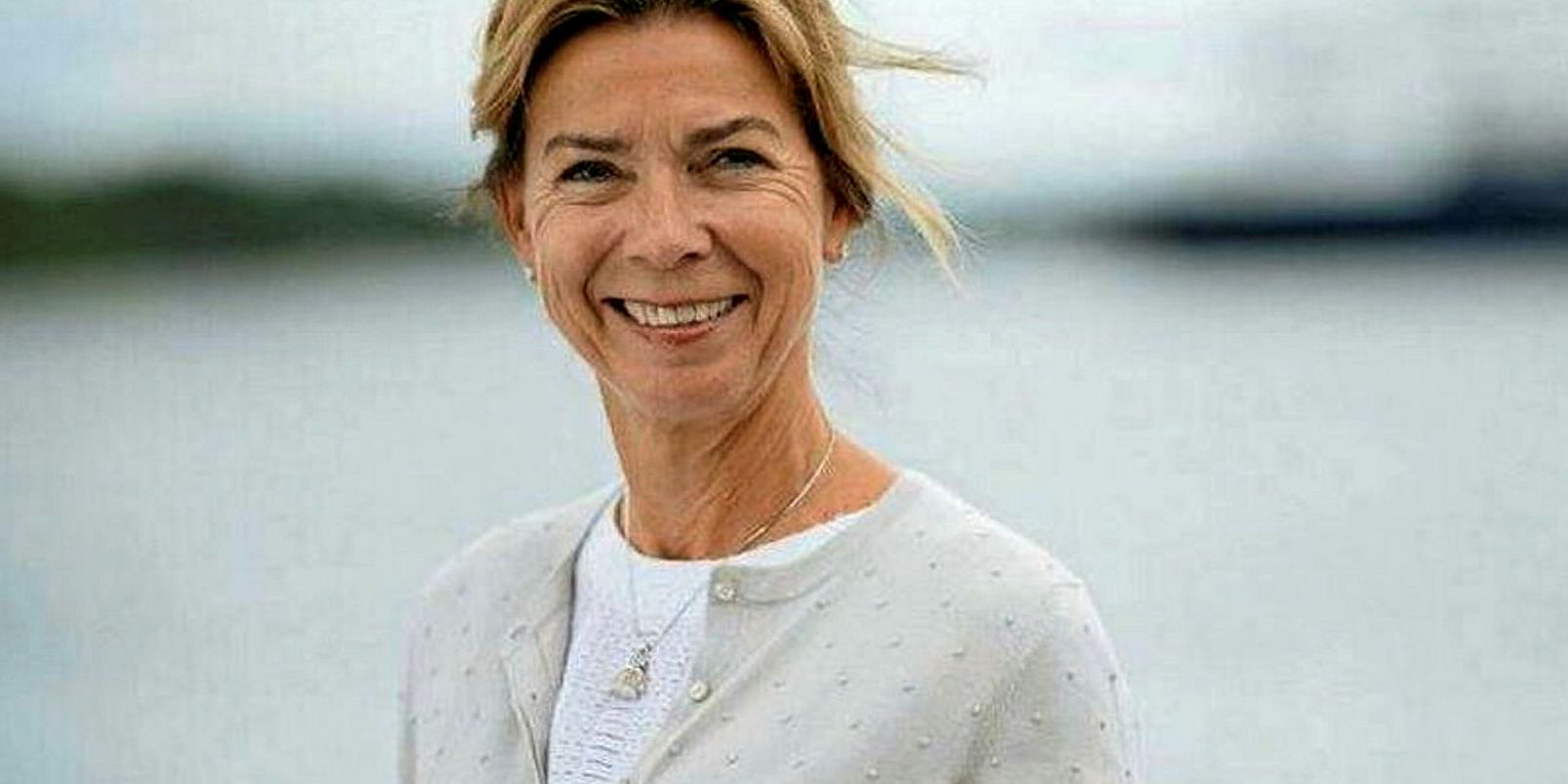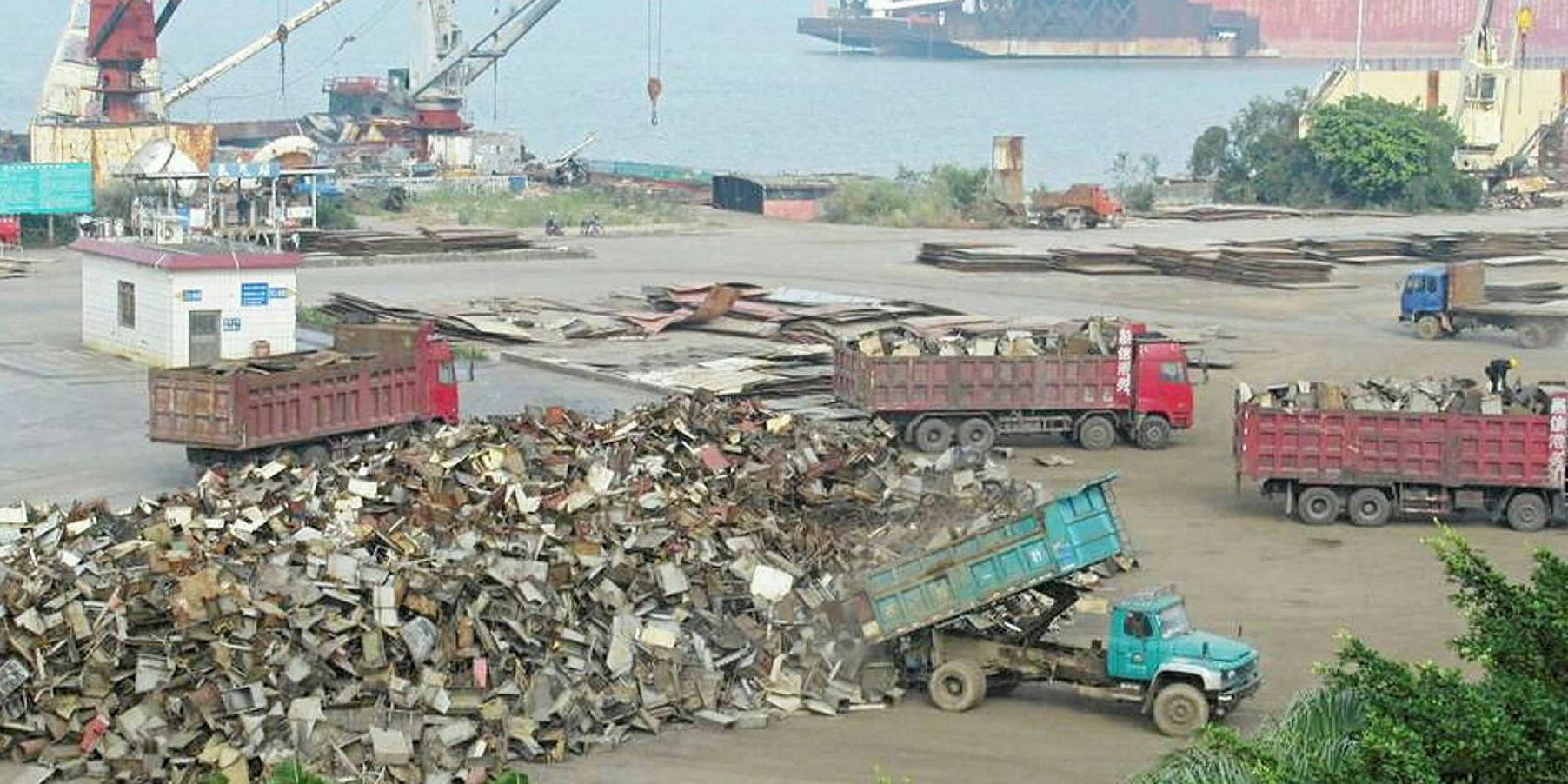As one of the largest shipping banks in the world, DNB is well placed to serve as an agent of change for the entire industry.
"We in the financial sector must ask ourselves what role we have to play in a more sustainable world," says Kristin Holth, global head of the Nordic lender’s Ocean Industries division.
No fewer than 835 ships were scrapped last year alone. A sizeable portion—543 in all—ended up on a beach in India, Pakistan or Bangladesh. Labourers who dismantle tonnage in these regions often lack personal protective equipment that safeguard against falling objects, burns, dangerous chemicals and other hazards.
On 1 November 2016 nearly 20 shipbreakers died and dozens were injured when a fire erupted on a tanker at the Gadani recycling plant in Pakistan. While the tragedy triggered a series of measures to improve health and safety, concerns about hazardous waste disposal, working conditions and policy enforcement continue to plague the sector.
Establishing the international regulatory framework needed to facilitate meaningful, lasting change in the recycling segment takes time. It isn’t easy. Banks, on the other hand, can use loans as leverage when funds are earmarked for acquisitions by including green recycling clauses at the outset.
“We can choose to take a step forward, instead of just sitting and waiting,” Holth says. “Access to capital will be focused toward companies that make sound choices.”

Shipbreaking inside a shipyard
A few years back, DNB was contacted by ABN Amro, ING and NIBC, the Dutch lenders that devised the Responsible Ship Recycling Standards (RSRS), a platform dedicated to the proliferation of safer scrapping policies.
“We joined in 2017,” Holth says. “ At the same time, we started gathering Nordic banks together in an effort to promote the implementation of RSRS and broader sustainability initiatives. Some have gone ahead with this, but we now realise we must be proactive and ascertain exactly how we can contribute”.
When the government imposes new regulations the industry adjusts accordingly, and new opportunities emerge. The thinking behind private sector initiatives like RSRS is that a similar sequence of events will unfold as more lenders pledge to include responsible ship recycling standards in loan agreements right from the start.
While the darker corners of the demolition market dominate headlines, there are alternatives. Grieg Green is among the growing number of companies engaged in ship recycling that are committed to compliance with the highest health, safety and environmental standards.
“The shipyards we use have a dock, big cranes and all the necessary equipment,” says Petter Heier, managing director of Grieg Green, which was established in 2010. “It’s far easier, and safer, to strip down a ship on a dry dock than on a beach.”
While much of the work is carried out in China and Turkey, Heier is always on the lookout for new shipyards that meet his requirements.
"Demand for our services is growing," Heier explains. "More pressure is being applied by third parties on the shipping companies—by the banks, customers and companies’ own employees. These companies are holding themselves accountable, and choosing to operate more responsibly on their own.”
Contagious commitment
Last spring, Holth hosted meetings with her Nordic compatriots. The list includes Nordea, which is now on board with the responsible ship recycling standards initiative.
“Our aim, through RSRS and ongoing dialogue with customers, is to promote sustainable ship recycling," says Thor-Erik Bech, who, together with Geir Atle Lerkerød, heads Nordea’s global shipping and offshore unit. "We believe that the engagement shown by leading banks in the sector, like DNB and Nordea, represents a major step toward change in this vital area.”
This year, the United Nations’ (UN’s) World Oceans Day was celebrated on 8 June. On this day, Holth and her colleagues traveled to New York where they attended a working group that followed the launch of the UN Global Compact’s Sustainable Ocean Business Action Platform. Participants are scheduled to meet again later this month.
The new platform is committed to initiatives that support the UN’s pursuit of 17 sustainability targets. Efforts that revolve around commercial maritime operations are led by Sturla Henriksen, the former chairman of the Norwegian Shipowners’ Association who has served as a UN Special Advisor since the start of 2018.
The primary objective is to inspire action from within the shipping industry—instead of waiting for the passage of laws and regulations—in collaboration with compatriots from around the world. Shipping is an international business that can be tough to regulate. It’s not covered by the Paris Agreement.
The industry has a big footprint. Consequently, change doesn’t happen overnight. While the IMO is combating emissions and actively pushing for safer, more sustainable shipbreaking practices, it will take time to achieve the goals associated with these efforts.
“If we can help to implement these changes, it will be to everyone's benefit,” Holth concludes.
Holth is scheduled to speak at the "Havet" ocean summit in Oslo on 16 October 2018. For more information about the conference click here or on the button at the bottom of this page
This article is part of a series entitled "The Ocean". These stories were produced by DNX Studio, an affiliate of TradeWinds and its publisher, NHST Global Publications, on behalf of various advertisers.


